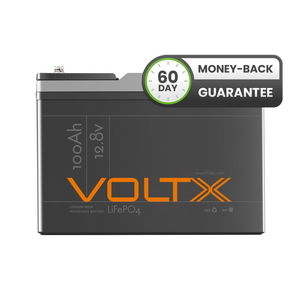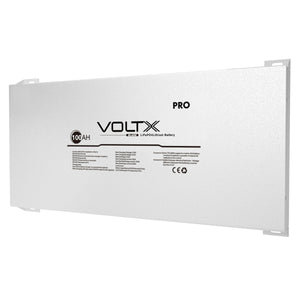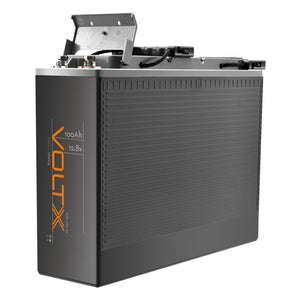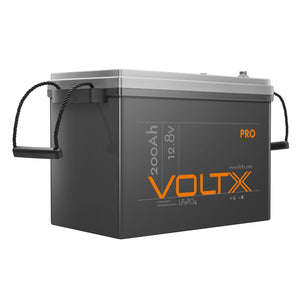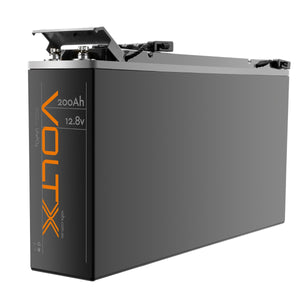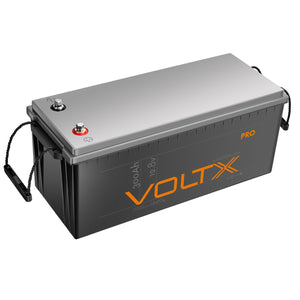Small and portable 12V batteries are among your best picks whether for camping, home backup, or RVs. It's probably safe to say that it's the standard capacity for the majority of battery applications and with several types, you can easily pick which one best suits your needs. Batteries do not generate energy or power on their own. Instead, they simply store it for you to use when you need it. The power supplied to you by a battery is referred to as direct current (DC) power and is separate from what we call alternating current (AC) power which you get from electrical sockets in your home. If you need AC power from a battery pack, you need to use an inverter along with it.
Now back to 12V batteries. In cases where you need higher voltage or storage capacity, you can connect these batteries together via a series or parallel connection. Simply put, if you put two 12V batteries in a series connection, you'll get a 24V battery. Meanwhile, if you connect them in parallel, you will still have a 12V system but now you can power your equipment twice longer than when you use a single 12V battery.
Which Batteries are 12V?
There are a number of 12-volt rechargeable battery types but the most common ones would be lead-acid and lithium. Lead-acid has been around for a long time and is considered the most basic 12V battery type. They're known for being cheap and ideal for starting batteries, but has the shortest lifespan among all kinds of battery and can be sensitive to extreme temperatures. This battery also has various types-it can be Flooded Lead-Acid, Sealed Valve-Regulated Lead-Acid, Gel, or AGM. While all of these are on the affordable side, they mostly require strict maintenance and lengthy charging hours. Overall, although they have their specific advantages, the performance of all lead-acid batteries are a little out of date compared to newer battery technologies that have been emerging in the market.
Moving on to lithium batteries-they're relatively new but gradually gaining traction due to their significant upgrade from traditional batteries. These batteries have more efficient electricity storage and have the longest lifespan out of all batteries on the market. The lithium iron phosphate battery or LiFEPO4 specifically is the most commended lithium battery pack for its unrivalled safety attributes such as non-toxic components and incombustible feature. More importantly, LiFEPO4 protects against usual battery issues like overheating, overload, and short circuits. They even last for up to ten years with correct usage, so despite being more expensive, you're actually saving yourself from constantly buying new batteries.
What Are Small 12-Volt Batteries Used For?
Small 12-volt batteries are often used for transportation like in cars and boats. For those who love outdoor adventure, this will also be a good portable power source. You can either pack a 100Ah lithium battery or 200Ah lithium battery to your camping trip, pair it with a good inverter or include it in your RV's solar panel system for reliable power no matter where you wish to go. If you want something even more space-savvy, there are 12V slimline batteries that will make great caravan batteries too.
Can You Recharge a 12V Battery?
The first thing to remember when charging your 12V battery is to use the appropriate battery charger to avoid damaging your unit. Remember, the more discharged your battery is, the longer it will take to fully charge. Sometimes it can even take 12-24 hours to completely recharge your battery depending on what kind you're using. The best way to top up your battery is through slow charging since repeated fast charging can reduce its lifespan in the long run.
During the charging process, ensure that the cables are attached to the correct terminals and use clips or clamps if needed. Leave your battery and check from time to time if it's fully charged already. You can do this either by monitoring your battery charger display or using a voltmeter. For a 12-volt battery, the voltage measurement between your battery terminals should be 11-13. The closer the metric is to 13, the closer your battery is to being fully charged.
More from Outbax
Ready to purchase your small 12V battery? Visit Outbax now and choose among our lithium batteries for sale. We have a range of LiFEPO4 and other power sources too such as inverter generators and solar panels. Browse our battery prices to get a good estimate of how much you will pay for but here’s a little good news: We offer our products at a more affordable price, so you get quality camping gear without breaking the bank.
